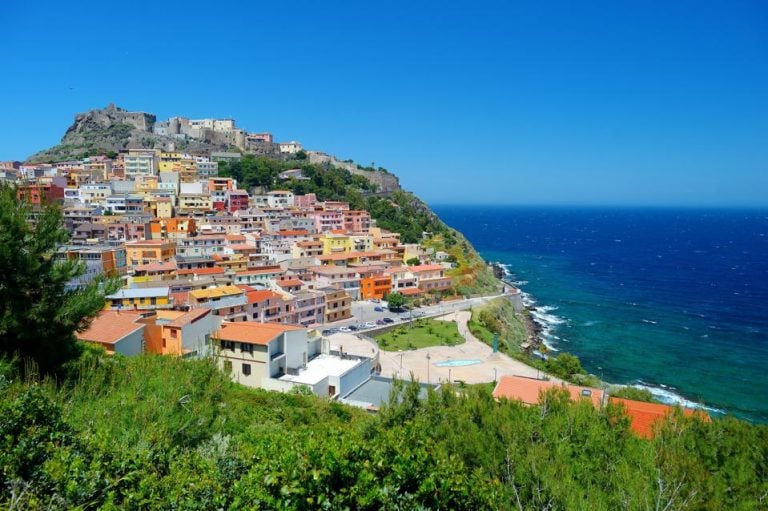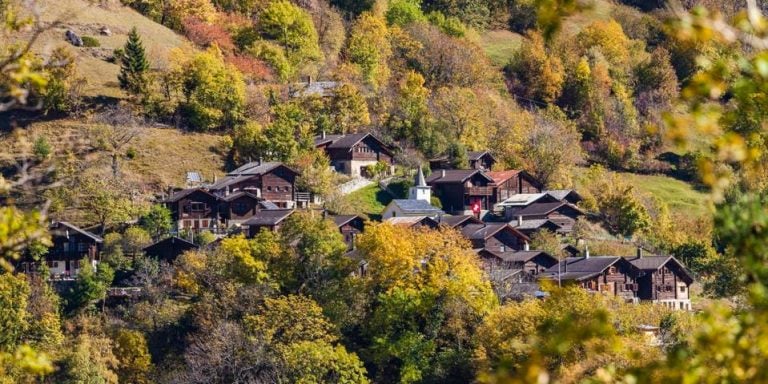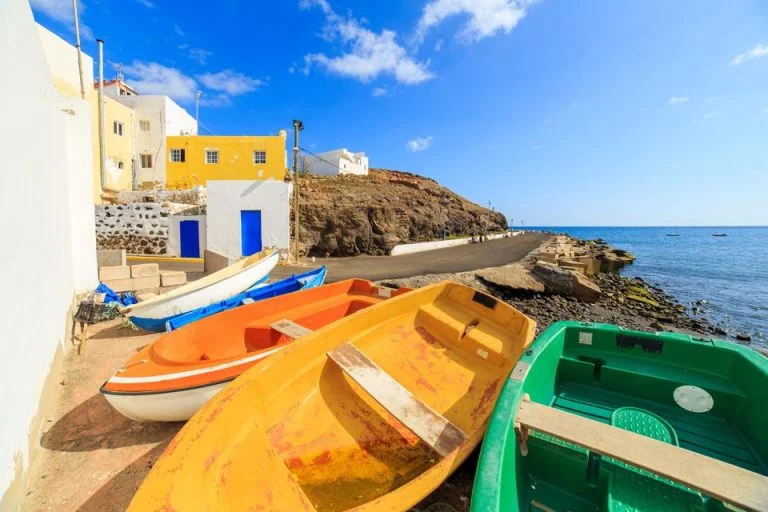By Cecilia Rodrigues*
Several European cities are so concerned about population decline that they offer subsidies for foreigners to move.
There is an aid for buying property, cheap rents, and even cash payments for new residents to move in – and have children.
All to encourage relocation.

The initiative is not new, and cities that have already put funding and other relocation incentives have received so much global media attention that new destinations are increasing their offerings.
From Switzerland to Italy, Greece to Spain, in some cases, the subsidy is up to €50,000 per family to attract residents.
“However, you won’t find incentives like these in major beach vacation spots or big cities,” explains ThinkSpain.
“The idea of financial incentives for people to move to municipalities is to prevent their population from shrinking and to justify the maintenance or acquisition of facilities that might otherwise be considered unprofitable.”
There are many tempting invitations available across the continent.
Late last year, according to Time Out, Italy announced that it would pay €30,000 to people to move to some of its rural towns.
“The country also has a €1 residential scheme underway, recently putting eight houses in Sant’Elia up for sale to stimulate the town’s economy.”
The offers – naturally – come with conditions attached.
Many prefer families with children or people who plan to have children when they settle down.
They also require assurance that they intend to live there for a long time.
“Many rural European areas face aging populations as young people move to cities or choose not to have children.”
“To combat this, some local governments encourage foreigners to reside there.”
IN SEARCH OF DIGITAL NOMADS
Following the Covid-19 pandemic, digital nomads have become a major target for tourism.
“Unlike traditional tourists, remote workers tend to stay in an area for several weeks or months, funneling money into local housing, restaurants, supermarkets, gyms, dry cleaners, and salons,” writes Traveling Lifestyle.
Small cities and towns worldwide have created special programs, cash payments, and other incentives to attract them.
According to the site, “Spanish villages will pay digital nomads up to US$3,500 to move.”
“The National Network of Welcoming Villages, which has about 30 members, is trying to attract foreign remote workers to Spain by providing coworking spaces, high-speed internet services, and cash for moving expenses.”
The participating villages are “small, cheap, and full of charm.”
The article says that the cost of living in these places can be as low as US$175 per week and no more than US$475.
It mentions:
- Benarraba – a town of fewer than 500 inhabitants in Malaga in northern Andalusia
- Tolox – a picturesque village also in Malaga with a population of just 2,250 in the Sierra de las Nieves mountains.
- Oliete – in the Aragon region, with 343 inhabitants and “a vibrant cultural and gastronomic scene”;
- Kuartango – in the Gorbeia Natural Park in the Basque Country, with a population of 430 people;
- Tejeda – in the mountainous Canary Islands, a small town “just an hour’s drive from the coast”;
- and San Vicente de La Sonsierra – in the La Rioja region, with 1,030 inhabitants.
Check out some of the latest offers from cities in Europe:
ALBINEN, SWITZERLAND

Albinen, in the Swiss Alps, has fewer than 250 residents and is offering to pay families over €50,000 to move there.
“Perched on a mountainside in the canton of Valais, the picturesque village is just over an hour’s drive from the famous Verbier ski resort,” explains Euronews.
The municipality offers CHF25,000 (US$27,955) for adults under 45 to move there and CHF10,000 (US$11,182) per child.
The grant was opened first to Swiss citizens or qualified foreigners who have lived in Switzerland long enough to obtain a ‘permit C’ residence.
Applicants must also live in a house worth at least CHF200,000 (US$223,640) and commit to living in Albinen for ten years.
PONGA, SPAIN

In the Asturias region of northern Spain, Ponga is offering up to €3,000 for families with children and up to €2,000 for singles or couples without children.
Families that increase the population will receive an additional €3,500 for each baby born in the village.
In the heart of the Cantabrian mountains, Ponga is a town and municipality of 600 people with a UNESCO-designated biosphere reserve, very popular with hikers and only an hour’s drive from the coast.
With its emerald green mountains, the town is known to have witnessed the passing of the Celtic culture.
It is also known for its high-quality local products, including artisan cheese, honey, and cured meats.
To take advantage of the offer, people must agree to live there for at least five years.
“The lovely little town of Ponga in the mountains of northern Spain hopes the new citizens will boost the local economy while enjoying the 2,000 hours of sunshine throughout the year,” writes Time Out.
“Ponga is home to a large nature reserve, which means residents can access beautiful hiking trails, breathtaking bird-watching spots, and exciting adventure sports.”
“The nearby Costa Verde offers beach days, while locals can enjoy a more hectic pace of life in Gijón, the nearest city.”
RUBIÁ, SPAIN

The village of Rubiá, with 1,400 residents in northwestern Galicia, a two-and-a-half-hour drive from Santiago de Compostela, will pay new residents – preferably families – up to €150 a month to live there.
The subsidy hopes to increase the number of students in local schools.
“Although not a famous destination among foreigners, Rubiá offers stunning natural scenery and a peaceful lifestyle.”
“Rubiá is well connected to the region of Galicia, as well as an airport in Santiago de Compostela with flights to Porto in Portugal,” writes Digital Émigré.
CHEAP RENT
The Expatriate Group adds two small villages that offer vacant rental properties at a price considered low for the region:
Xesta, a small village with fewer than 100 residents in northwestern Spain, “has about 125 vacant properties that it intends to fill, offering newcomers the opportunity to pay just €100 in rent.”
The village of Griegos in eastern Spain, with 130 residents, “offers jobs and three months free rent to new arrivals.”
“After that, rent will be only €225 per month, and residents will receive an extra €50 for each child between the ages of 4 and 18.”
SOME ITALIAN OFFERS
The sunny region of Calabria in southwestern Italy is offering up to €28,000 for people willing to move to a village with fewer than 2,000 residents, reports Euronews.
“The initiative aims to combat depopulation, and those interested in applying must be aged 40 or under and relocate to the region within 90 days of accepting the application. They must also start a business or find a job.”
PRESICCE-ACQUARICA, ITALY
Presicce-Acquarica, in the province of Lecce in the Puglia region of southern Italy, will pay new residents up to €30,000 to move there and an additional €1,000 for each baby born there.
The money must be used to buy and renovate an uninhabited pre-1991 property in the area – there are many – and individuals or families must move their official residence to the city.
The municipality consisting of two towns – Presicce and Acquarica del Capo – is surrounded by fields and olive groves.
According to Euronews, the scheme’s details are almost finalized, and applications will open on the local municipality’s website later this year.
SARDINIA, ITALY

The island of Sardinia offers €15,000 to people ready to move there.
Known for its sandy beaches, blue skies, and turquoise waters, the Mediterranean idyll wants to combat the exodus. The government has set aside €45 million for the relocation plan to cover 3,000 grants.
To qualify for the grant, people must move to a Sardinian municipality with a population of less than 3,000 people, and the money must be used to buy or renovate a house.
Recipients must live there full-time and register for permanent residence in Sardinia within 18 months of arrival.
CANDELA, ITALY

Candela, a small town in the Puglia region of southeastern Italy with about 2,700 inhabitants, appears on the list of “countries that will pay you to live there” published by Expatriate Group:
“It is one of the safest cities in Italy and has beautiful classical Italian architecture.”
“Candela is offering €800 for singles, €1,300 for couples, and €2,000 for families to move into the villa. ”
“To be eligible, newcomers must rent a property in Candela where they intend to live and secure a job with a minimum income of €7,500 per year.”
GREECE’S FINANCIAL INCENTIVES
“Greece is facing a difficult situation as its population is getting smaller and older,” writes Digital Emigré.
“The birth rate is low, and many people are leaving the country.”
“This puts a lot of pressure on the social security system and makes it harder for Greece to grow economically and find enough skilled workers.”
One island in Greece offers incentives to encourage newcomers and combat the trend.
ANTIKYTHERA ISLAND

On this island, south of mainland Greece and northwest of Crete, the Greek Orthodox Church has introduced a plan to pay families to move there.
“New residents will receive a house and land, in addition to the sum of €500 every month for the first three years of living there,” writes the Expatriate Group.
“The island promises a quiet, rural life, with beautiful beaches and that wonderful Greek weather.”
*Cecilia Rodrigues is a contributor to Forbes US. She writes about travel and European affairs.
With information from Forbes

